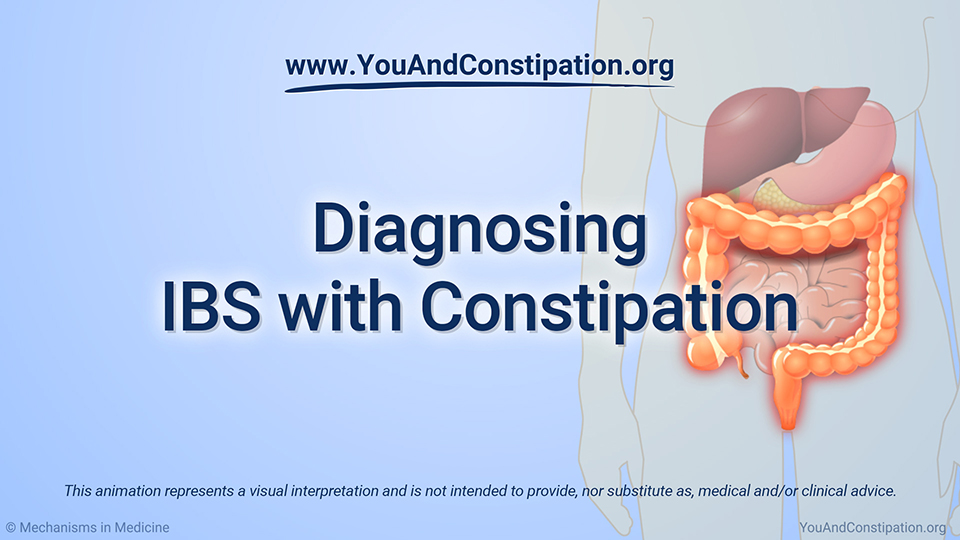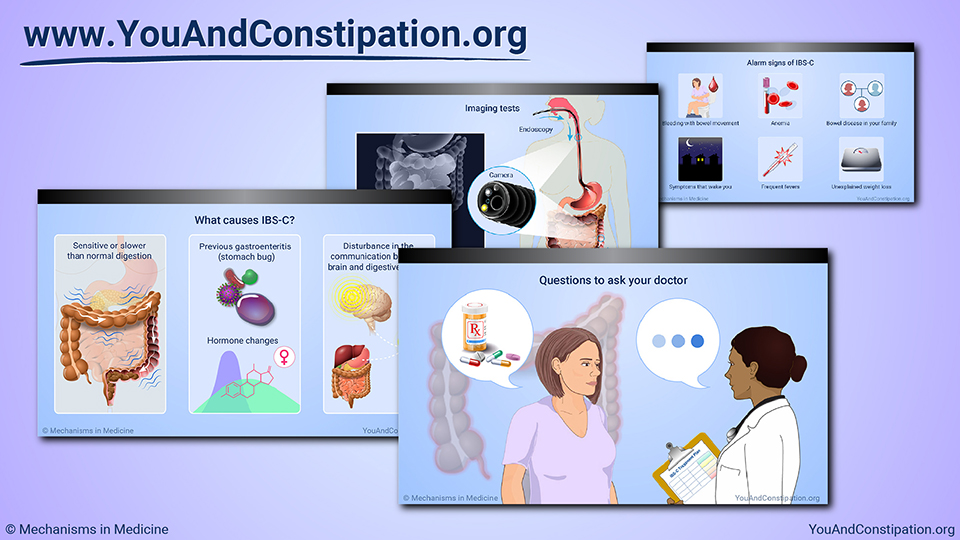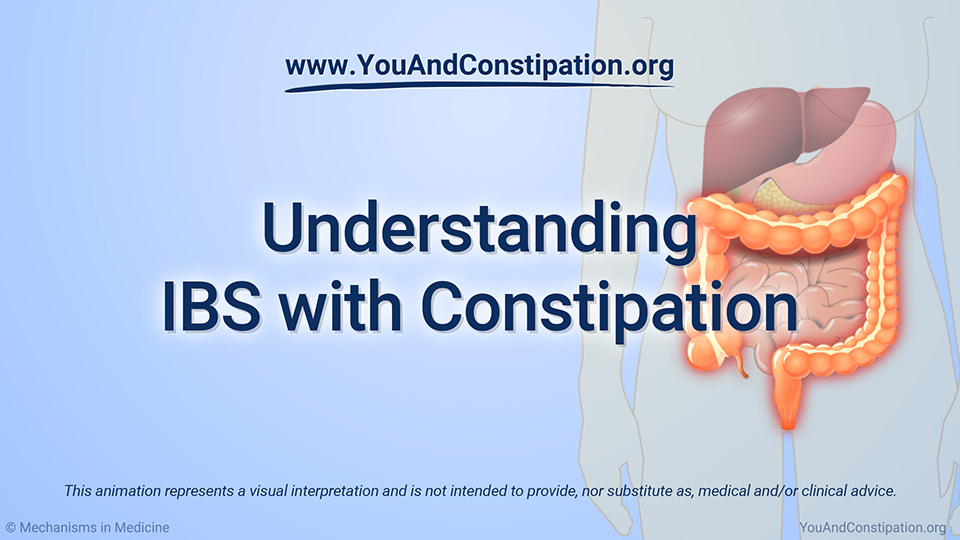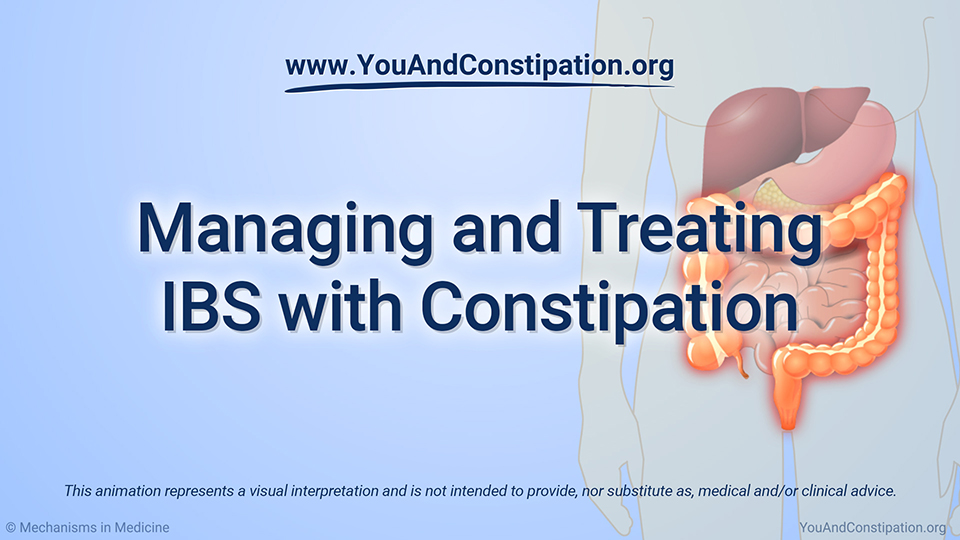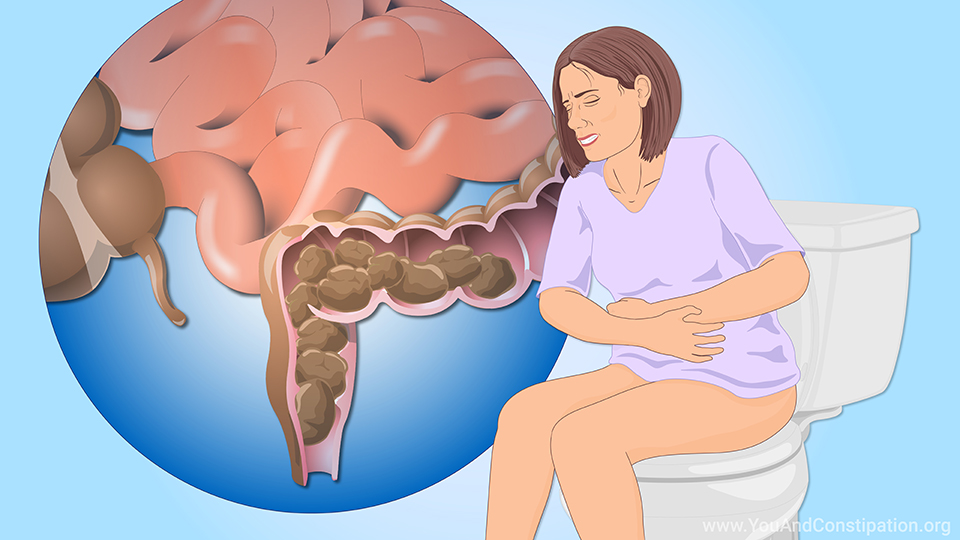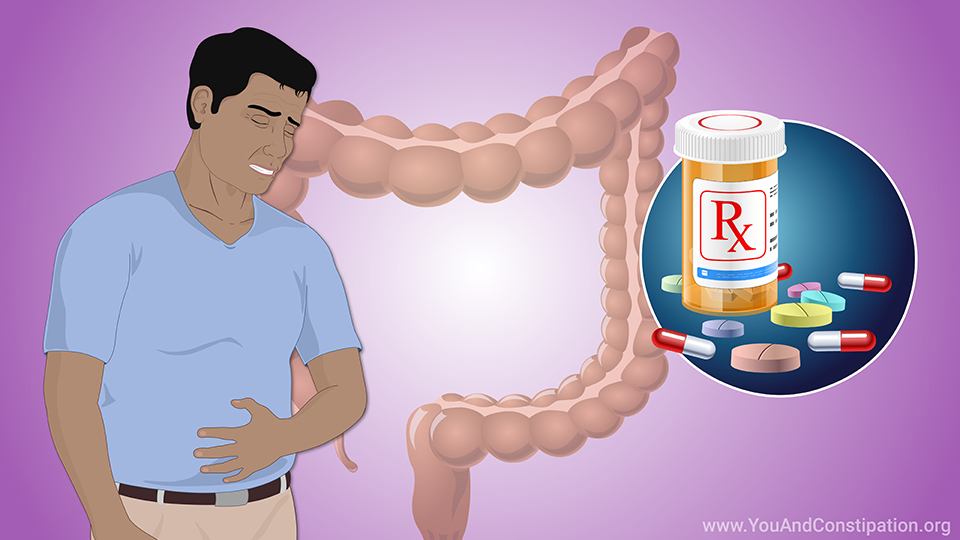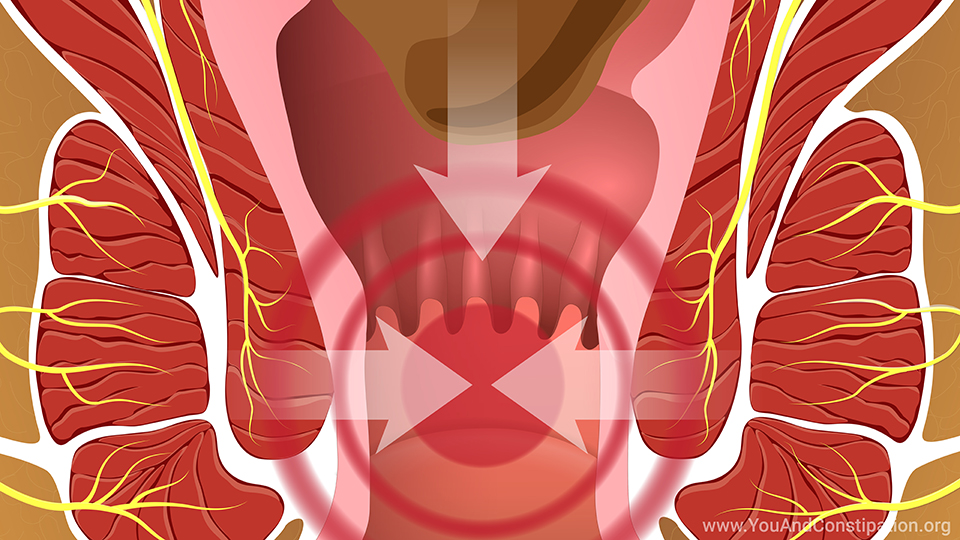Diagnosing IBS with Constipation
*Please note: This slide show represents a visual interpretation and is not intended to provide, nor substitute as medical and/or clinical advice.
About IBS with Constipation (IBS-C)
Irritable bowel syndrome with constipation (IBS-C), is a condition that causes abdominal pain or discomfort along with changes in bowel movements.
Your bowel movements may be small, hard, and less frequent than usual. When you have a bowel movement, it might be painful or difficult. You might also have gas and feel bloated much of the time.
What causes IBS-C?
Researchers believe that several factors may contribute to IBS-C. Causes may include:
- A sensitive digestive system.
- A digestive system that works more slowly than normal.
- A previous case of gastroenteritis, otherwise known as a "stomach bug".
- Hormone changes, especially in women.
Also, IBS may be caused by a disturbance in the normal communication between the brain and the digestive system.
How is IBS-C diagnosed? Review of symptoms
You should see your physician if you think you may have IBS-C. To try to understand your symptoms, they might ask:
- How often do you have bowel movements?
- What do your bowel movements look like?
- Do you have abdominal pain or discomfort?
- Does the pain or discomfort change when you eat a meal or have a bowel movement?
Talking about bowel movements can be embarrassing. But your physician has asked these questions many times and is used to the answers. The more you can openly share with your physician, the better your chances of improving your health.
Tests you might have for IBS-C
Your physician may do tests to make sure you have IBS. These tests may include:
- Blood tests.
- Tests on a sample of your bowel movements.
- Breath tests.
These tests can help your physician learn if you have a bowel condition other than IBS, because IBS mimics many other diseases.
IBS-C can be difficult to diagnose
IBS-C can be difficult to diagnose because there is no specific test for it,1 and other conditions cause similar symptoms.
IBS-C can be difficult to diagnose
But physicians have several diagnostic criteria and checklists they can use to identify IBS.
Alarm signs of IBS-C
Your physician might order specific tests if you have:
- Bleeding when you have a bowel movement.
- A condition called anemia, where you have too few red blood cells.
- Bowel disease that runs in your family.
- Symptoms that wake you up at night.
- Frequent fevers.
- Weight loss when you are not trying to lose weight.
Alarm signs of IBS-C
You will probably also have more tests if your physician believes your age might be a factor in your condition. Some conditions are more common at certain ages.2
Imaging tests
Imaging tests may include an X-ray of your abdomen, an endoscopy or a colonoscopy.3 In these procedures, a physician puts a small tube with a camera inside your body to look for changes to the lining of your bowel.
Other tests if needed
Most people with IBS-C have no physical changes to their digestive system. If your physician cannot see abnormalities but is still concerned, they can ask for more tests.
Monitoring IBS-C symptoms
You may see your physician regularly after a diagnosis of IBS-C, so they can check your progress. You might also need to keep a record of symptoms, foods, medicines you take, and other factors, such as life events.
Questions to ask your physician
When you see your physician about possible IBS-C, you might ask why they think it is IBS. You can also ask which treatments can relieve your symptoms and if your IBS may decrease or disappear in time. They can help you to manage your IBS-C and be more comfortable.
References
- Wold A. Clinical manifestations and diagnosis of irritable bowel syndrome in adults. Talley NJ, ed. UpToDate. Waltham, MA: UpToDate Inc. https://www.uptodate.com. Accessed July 26, 2019.
- International Foundation for Gastrointestinal Disorders. Diagnosis of IBS. About IBS. https://www.aboutibs.org/diagnosis-of-ibs.html Updated November 2016. Accessed July 26, 2019.
- Kavanagh RG, O’Grady J, Carey BW, O’Connor OJ, Maher MM. Review of the role of abdominal imaging in irritable bowel syndrome. World J Radiol 2018 Nov 28;10(11):143-149. doi: 10.4329/wjr.v10.i11.143
This slide show explains the tests that
physicians use to
diagnose irritable bowel syndrome with constipation (
IBS-C), including general examination, blood tests, breath tests, bowel movement sample tests, imaging tests, and others. These tests can help your physician learn if you have a bowel condition other than IBS, because IBS mimics many other diseases. The animation also describes the causes and alarm signs of IBS-C.
-
Share with family and friends:
Click here to take our SURVEY
Your feedback is important to us! We will use your feedback to develop future areas of content about constipation which will help other patients, caregivers and families.
